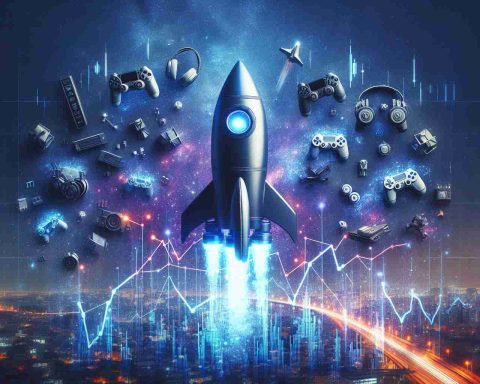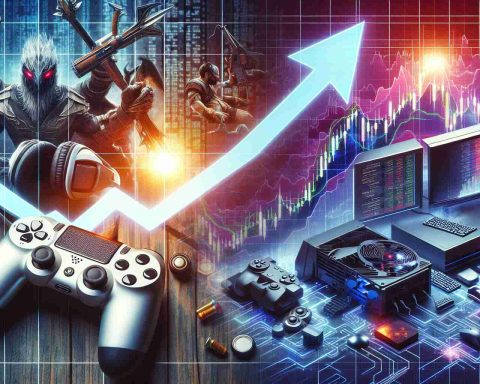In a strategic escalation of technological tensions, the United States is set to enact additional restrictions against China’s semiconductor sector this Monday. This latest initiative will affect over 140 Chinese firms, including prominent players like Naura Technology Group. The U.S. government is determined to undermine China’s ambitions in advanced chip manufacturing, particularly as it relates to artificial intelligence and national security.
As part of this crackdown, significant limitations will be placed on the export of high bandwidth memory chips essential for artificial intelligence applications. The new regulations also extend to numerous chipmaking tools, potentially impacting global suppliers, including major American companies and their overseas counterparts.
This aggressive stance is indicative of the Biden administration’s strategy to constrain China’s technological rise. It arrives shortly before a political transition in the U.S., as expectations mount that former President Donald Trump will likely continue many of the existing tough policies toward China.
Amidst increasing efforts for self-sufficiency in semiconductors, China remains several years behind industry leaders in critical technologies. The new export controls illustrate a comprehensive approach that not only targets semiconductor manufacturers but also the crucial financial backers in this sector, positioning the U.S. to maintain a competitive edge in the fast-evolving tech landscape.
As tensions rise, the international semiconductor market braces for further ripples caused by this targeted U.S. approach.
U.S. Announces New Semiconductor Restrictions: Key Impacts and Insights
Overview of U.S. Restrictions
In a move that underscores the ongoing technological rivalry between the United States and China, the U.S. is implementing stringent new restrictions targeting China’s semiconductor industry. Slated to begin this upcoming Monday, these regulations are poised to impact more than 140 Chinese firms, including major players like Naura Technology Group. The Biden administration aims to curtail China’s advancements in advanced chip manufacturing, which are crucial for artificial intelligence (AI) and national security.
Key Features of the New Regulations
1. Export Limitations: The U.S. will restrict the export of high bandwidth memory chips, which are integral to AI technologies. This is expected to hamper China’s ability to develop competitive AI systems.
2. Chipmaking Tools: Additional limitations will be placed on numerous chipmaking tools, affecting both American suppliers and their global partners. Such restrictions could disrupt the supply chains critical to semiconductor manufacturing worldwide.
3. Financial Institutions Targeted: The measures extend beyond manufacturers to encompass the financial backers of semiconductor firms in China, indicating a deep and comprehensive approach to limit China’s technological capabilities.
Pros and Cons of the Restrictions
Pros:
– National Security: By limiting China’s access to advanced semiconductor technologies, the U.S. seeks to protect its national security interests.
– Industry Leadership: The restrictions could bolster U.S. leadership in semiconductor technology, securing its edge over global competitors.
Cons:
– Global Supply Chain Disruption: These restrictions may affect the entire semiconductor supply chain, leading to potential shortages of critical components globally.
– Retaliatory Measures: China may respond with its own restrictions, escalating trade tensions further.
Current Semiconductor Landscape
– Market Analysis: As of recent reports, China continues to lag significantly behind leaders in semiconductor technologies, indicating a potential long-term disadvantage in the tech race.
– Investment Trends: The crackdown is expected to invigorate investments in domestic semiconductor capabilities within China, as the government aims for self-sufficiency.
Future Predictions
Analysts predict that the evolving semiconductor landscape will see increased competition, with countries across the globe reevaluating their import and export strategies in technology. Further restrictions could spur innovation in alternative technologies, such as quantum computing and AI, while also pushing countries to expedite their own semiconductor development initiatives.
Innovations and Technologies Affected
The semiconductor industry is at the heart of technological innovation. Key sectors that could see disruptions include:
– Artificial Intelligence: With restrictions on essential components, the speed of AI advancements may slow.
– Consumer Electronics: A potential fallout could involve delays in product launches for devices that rely on the affected chips.
Conclusion
As the United States tightens control over semiconductor exports to China, the international semiconductor market braces for significant changes. The decisive nature of these regulations reflects an acute awareness of the strategic dimensions of technology leadership and its implications for global security.
For more updates on technology and market trends, visit our main site.



















